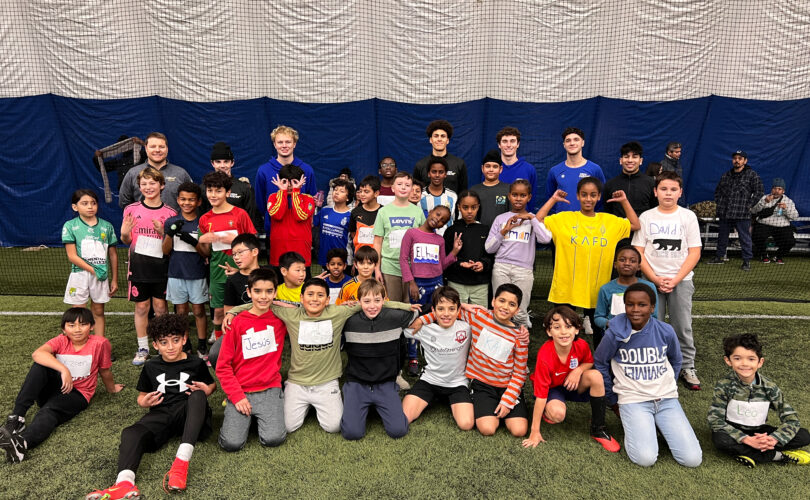United Against Discrimination
The Coalition
The United Against Discrimination (UAD) Coalition, formerly known as the Organize Against Racism and Hate (OARH), continues to work against racism and discrimination through our cooperative agencies and individual bystanders. As a group of concerned stakeholders, we affirm our commitment to promoting diversity and inclusion, thereby fighting racism, discrimination and hate. We agree to report incidents, provide information on community resources and to stand up for those affected. We seek systemic change through social, political and educational action and advocate for both official endorsement of and financial support for these actions.
The Project & Goals
The UAD project is supported by UBC CUES fund and Resilience BC, is a program of KCR Community Resources. Our goal is to raise awareness, develop a community-based solution, and build capacity to provide support to victims by doing the following:
- Collect incident reports as relevant baseline information, map the time and location they occurred, and, inform the BC province.
- Recruit community partners and develop a community response protocol.
- Educate service providers, community partners and the general public on anti-racism and anti-discrimination.
Resources & Agencies:
310.Mental Health (310.6789): BC toll-free crisis line for individuals who would like emotional support, information and resources. The service is available 24/7. No need to dial an area code.
AMSSA: The provincial umbrella association for immigrant and newcomer serving agencies in BC. AMSSA excels in building partnerships and networks, developing and facilitating training events and producing highly relevant information resources based on current research and policy trends.
BC’s Office of the Human Rights Commissioner: Address the root causes of inequality, discrimination and injustice in B.C. by shifting laws, policies, practices and cultures.
UAD is part of the Resilience BC Anti-Racism Network, which is bringing communities together to do the hard work and make this vision a reality. On this website you can connect with community network, learn about racism, find tools and resources.
VictimLinkBC: Call or text 1.800.563.0808 or email VictimLinkBC@bc211.ca.
Tools & Articles:
Right to Be has launched Social Media Safety Guides for Twitter, Facebook, YouTube, Instagram, and Tumblr. You can refer to these easy social media safety guides to respond quickly and take action against online harassment.
Calgary Anti-Racism Education provides a space for facilitators to engage self-guided learners in challenging racism, including developing an anti-racism vocabulary, becoming an anti-racism facilitator and adopting learning actions for further engagement. It also features an extensive glossary and resources.
Call It Out: This 30-minute interactive e-course by the Ontario Human Rights Commission allows you to learn about the history and impact of racism in Canada. It helps you unpack terms like ‘race’, ‘racial discrimination’ and ‘white privilege’ and how you can prevent and address racism and hate.
Challenging Racist British Columbia: 150 Years and Counting” is an educational resource written by co-publishers of the University of Victoria (UVic) and the Canadian Centre for Policy Alternatives (CCPA). It is an 80 page fully illustrated booklet that looks at the history of racist policies in British Columbia and covers various stories from Indigenous, Black, Chinese, South Asian, and Japanese communities from 1871 to the present day.
Join a Meeting!
The coalition meets quarterly on best dates selected by coalition members to discuss and work collaboratively on recent discrimination issues in the community, and to learn about events, tools and resources available Province-wide to promote awareness and inclusion in the community.
Please contact united@kcr.ca or 250.763.8008 ext 253 if you would like to join the coalition or report an incident.
UAD Incident Report Portal
At times, victims have chosen not to report incidents to the local police for fear of escalating the situation or increasing their risk. This leaves victims to bear the burden of resolving and processing incidents on their own. KCR Community Resources is able to collect reports of incidents of hate or racism and provide follow up safety and emotional support to victims to reduce the psychological impact. The data we collect will help the government and the community to identify the problems.
Q & A
Q: Who can report an incident?
A: Victims and witnesses, and social services workers. You can also submit a report on behalf of them if you have obtained the details of the incident.
Q: Who has access to the data and what is done with this information?
A: UBC researchers and UAD coordinators will receive the information provided on the incident form. The form does not ask for name or contact info. Any identity/info related to a workplace will be carefully handled with the best interest of the victims in mind. The incidents may be presented to the coalition, but reporters will remain anonymous.
Q: Can past events be reported?
A: Yes
Q: What will you do with the data you are collecting?
A: We intend to use the data to map these incidents, and then we can provide “pop up” systems for support. We will also inform the Province of BC about the situation in the Central Okanagan. Any reporting will keep the information anonymous.
In addition to the data being used to keep service providers aware of the frequency and types of incidents of discrimination and/or acts of hate in the community, the data may also be used for research purposes to generate reports for publication and presentations. In all cases, the data will be anonymized. No identifying information will be published without consent. Any person not comfortable with these uses should not use this portal.
Q: Is there involvement from RCMP?
A: No, only if we are asked by the victim.
Q: Can I report online incidents or incidences out of town?
A: Yes, as long as the incidences have a location that the victim was connected to. For online incidences, try to provide specific pages/groups/posts that the incidents were witnessed on.
Upcoming Events:
Inclusive Youth Soccer Sessions
Inclusive youth soccer sessions are more than just a sport — they are a powerful platform for promoting diversity, fostering cross-cultural understanding, and creating meaningful connections among young people. By providing a safe, welcoming, and accessible space, these sessions ensure that youth from all racial, cultural, gender, and ability backgrounds feel seen, accepted, and valued. Inclusive soccer helps break down barriers, reduce prejudice, and build lasting friendships. It also nurtures confidence, teamwork, and a sense of belonging, which are essential for healthy youth development and stronger, more connected communities.
Stay tuned for the upcoming summer 2025 sessions!








